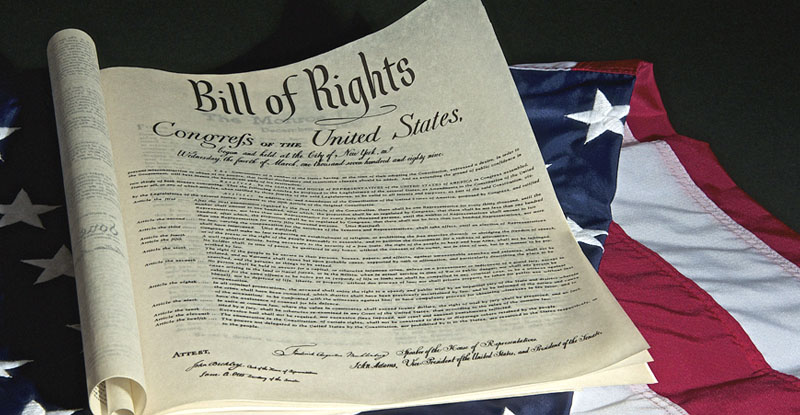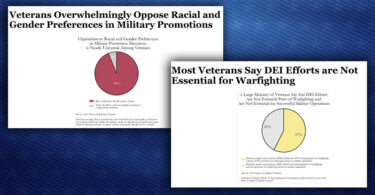By Jane Hampton Cook
STARRS Board of Advisors
Author of 10 books including Stories of Faith and Courage from the Revolutionary War
Where do humans get their rights? The Bill of Rights espouses one answer. Radicalism, which STARRS is fighting, champions the opposite philosophy that seeks to change society and institutions, both their successes and failures, “from the root.”
When George Washington became president in 1789, two states, North Carolina and Rhode Island, had yet to ratify the U.S. Constitution, in part because it lacked protections of specific human rights.
Because they had just experienced King George III’s tyranny, many Americans, known as Anti- Federalists, feared that America’s new government would turn tyrannical if the Declaration of Independence’s core philosophy was not guaranteed through Constitutional Amendments.
In contrast to English kings who believed they controlled human rights, the Declaration of Independence declared that human rights were God-given:
“We hold these truths to be self-evident, that all men are created equal, that they are endowed by their Creator with certain unalienable Rights, that among these are Life, Liberty and the pursuit of Happiness.”
These rights are natural and intrinsic. Government and culture do not grant rights. God does. Government’s job is to protect these rights given by God.
After the states ratified 10 amendments approved by Congress, the Bill of Rights became part of the Constitution on December 15, 1791. The most well-known amendment is the First Amendment:
“Congress shall make no law respecting an establishment of religion, or prohibiting the free exercise thereof; or abridging the freedom of speech, or of the press; or the right of the people peaceably to assemble, and to petition the Government for a redress of grievances.”
Where does radicalism believe human rights come from? Unlike the Bill of Rights, radicalism does not believe that God is the source of human rights. Man is. In fact, man is the supreme being.
“The criticism of religion leads” to the doctrine according to which man is, for man, the supreme being,” Karl Marx wrote in The Critique of the Hegelian Philosophy’s introduction.
Once socialism or communism replaces capitalism, God is not needed. “Finally, there is no use for Him, as humans freely govern their own lives,” Marx declared.
Radicalism Today
These philosophical distinctions are patently apparent from observations of America’s current state, which is has been characterized by continual lockdowns and other radical, draconian measures.
For example, Robert F. Kennedy Jr., nephew of the late President John F. Kennedy, recently argued that the entire Bill of Rights, except for the Second Amendment, was violated during the coronavirus pandemic.
“What!s happened in this country over the last year is kind of this bizarre imposition of totalitarian controls, the deconstruction of the Constitution,” Kennedy told Tucker Carlson for Fox Nation.
Kennedy further stated:
“The rise of censorship, the rise of the suppression of religious freedoms, of property rights, closing a million businesses without just compensation or due process, the abolition of jury trials, which are guaranteed by the Sixth and Seventh Amendment for any vaccine company that hurts you, all of these — and the rise of a kind of track-and-trace surveillance state — has been troubling to people, both Democrats and Republicans..”
Radical censorship is also playing out in cultural institutions. In a 2020 interview, Parag Agrawal, Twitter’s new CEO, declared that Twitter’s “ bound by the First Amendment.”
Twitter famously de-platformed President Donald Trump and numerous other conservatives in 2020. It also recently de-platformed Dr. Robert Malone, inventor of the mRNA technology, along with other scientists and physicians who are questioning the government’s COVID-19 narrative.
Where do Twitter and others find the audacity to violate the First Amendment rights of fellow Americans they disagree with? They find it in descendants of Marxism: critical theory and critical race theory.
Herbert Marcuse first espoused critical theory at the Frankfurt School, during the period prior to Nazi Germany, and then later at Columbia University after World War II. Writing about atheistic materialism in “Western Marxism,” Marcuse became the figurehead of the 1960s leftist student movement.
“… Marcuse condoned the repression of the more conservative voices in academia and the media for the sake of allowing more left-wing views to be heard,” according to New World Encyclopedia. Marcuse had a “notable influence on certain leading figures of the radical movement, including the Black Power activist Angela Davis and the anarchist author Abbie Hoffman.”
Marcuse’s double standard is alive and well through critical race theory, a neo-Marxist theory that pits people against each other based on race instead of class.
As another example, founder of the controversial 1619 Project, Nikole Hannah-Jones, told NBC, “I don!t really understand this idea that parents should decide what!s being taught.” The 1619 Project’s curricula is being taught in 4,500 schools as part of critical race theory.
Jones’ 1619 Project seeks to change the date of the nation’s founding from the Declaration of Independence in 1776 to 1619, the arrival of black slaves to Virginia. This is despite the fact that Spaniards first brought black slaves to America in the 1500s. Her project “is riddled with so many ‘errors and distortions’ that the National Association of Scholars demanded the revocation of her Pulitzer Prize.”
Jones claimed that her project was a “great learning tool for students” while admitting, “I!m not a professional educator, I don!t have a degree in social studies.” Yet, she had the gall to declare that teachers should not allow parents to review curriculum.
That is, in her mind Jones has the right to determine what children learn about history but the children’s parents do not. This is another example of radicalism’s method of determining human rights, in both philosophical and cultural defiance of the Bill of Rights.
Previous generations of Americans have faced similar threats.
“What we face is nothing more nor less than an attempt to overthrow and to cancel out the great upsurge of human liberty of which the American Bill of Rights is the fundamental document,” President Franklin Roosevelt said in defiance of Nazi totalitarianism during World War II.
The same thing could be said of today’s radicalism. We must reassert our belief that God, not government or culture, is the source of our rights. We must embrace the Bill of Rights, not its opposite philosophy, radicalism.
We must declare as Roosevelt did that “No threat or danger can make us yield our freedom guaranteed in the Bill of Rights.”








Leave a Comment